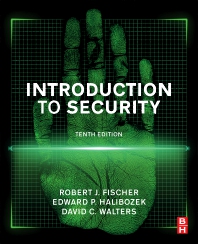In a recent unpublished opinion, the Appeals Court in the State of California dealt with a very interesting situation. The plaintiff was charged in a felony complaint for first degree burglary arising from a robbery at a personal dwelling, along with a misdemeanor count of brandishing a replica gun. The complaint specifically alleged that the plaintiff had a prior conviction of robbery.
The plaintiff entered into a negotiated plea agreement under which he pleaded no contest to two counts of second degree robbery and admitted the special allegation that he inflicted great bodily harm. In addition, the plaintiff pleaded no contest to one count of first degree burglary. The remaining charges were dismissed pursuant to the plea agreement. At the time the plaintiff entered into the plea, the trial court inquired whether the plaintiff had read the form or his attorney read it to him. The plaintiff replied, “Yes.” He also responded in the affirmative when asked whether he understood “everything on the form including all of his constitutional rights and consequences of plea.”
The plaintiff confirmed he had sufficient time to discuss the waiver form with his attorney and had initialed and signed the form. The plaintiff was told, “If there’s any direct victim restitution in this case, you are going to be responsible for that under Penal Code Section 1202.4(f).” The plaintiff said he understood the consequences of the plea and did not have any questions about the court’s advisements.
The trial court sentenced the man to a prison term and imposed a restitution fine of $2,400.
After the incident itself, the victim purchased a security door and installed a video security system in her home. The trial court admitted into evidence a receipt from an electronics store showing the purchase of a digital security system with night vision cameras for $159.99, plus $19.99 for an extended warranty and a receipt from a home improvements store showing the purchase of a security door for $316.95.
The victim installed the security equipment to prevent the type of incident from happening again. The trial court found the victim’s claimed economic losses totaled $1,176.93, including the home security equipment, cash and cigarettes. The court found the Penal Code Section specifically allowed reimbursement for those types of preventative measures and ordered restitution to be paid to the victim in the amount of $1,176.93.
The plaintiff appealed. The Appellate Court in discussing the case indicated that “under the California Constitution as amended in 1982 by Proposition 8 (commonly known as the “Victim’s Bill of Rights”), every crime victim has a right to be compensated by the defendant for a losses incurred as a result of the defendant’s crime.
The court pointed out that the California Constitution specified that “to the extent possible, the restitution order . . . shall be of a dollar amount that is sufficient to fully reimburse the victim or victims for every determined economic loss occurred as the result of the defendant’s criminal conduct.”
The Appellate Court held that the trial court properly awarded restitution for the cost of the security system to the victim. Therefore the restitution order was affirmed.






